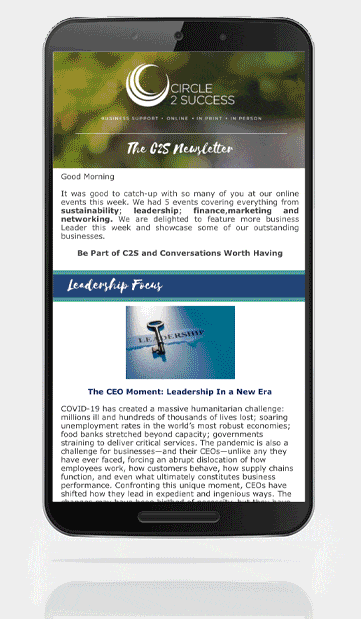Five Characteristics Of Highly Impactful Leaders

GETTY
As I think about those leaders who have had the most lasting impact on my life, I am reminded that there is not a one-size-fits-all approach to being a successful leader. Leadership styles and approaches often vary widely across organizational types and sizes, industries and sectors. Additionally, being a successful leader in one context doesn’t necessarily translate over to being successful in another. However, the most impactful leaders in my life tend to share many common traits and characteristics.
Five Characteristics And Competencies
So what is it that makes for highly impactful leaders?
1. Practice emotional agility.
2. Create a clear meaning and purpose.
3. Practice systems thinking.
4. Practice openness and transparency.
5. Authentically care.
1. Practice emotional agility.
Impactful leaders need to develop and practice emotional agility. In a recent Harvard Business Review article (registration required), the authors state, “Effective leaders don’t buy into or try to suppress their inner experiences. Instead they approach them in a mindful, values-driven, and productive way — developing what we call emotional agility. In our complex, fast-changing knowledge economy, this ability to manage one’s thoughts and feelings is essential to business success.”
Indeed, if we hope to effectively connect with and lead our people, we need to first understand and be clear-minded about our own inner workings: what drives us, how do we respond to stressors, what situations bring out our best (and worst), how do we prefer to lead and how do we like to be led? As we better understand these and other aspects of ourselves, we can more effectively practice self-care. Additionally, we will be better equipped to practice emotional agility and be in a position to show genuine empathy and better understand and support our people.
2. Create a clear meaning and purpose.
Impactful leaders need to create a clear meaning and purpose for their people. In a recent Forbes interview with Wendy Ulrich, co-author of The Why of Work, Dr. Ulrich states, “People find meaning when they see a clear connection between what they highly value and what they spend time doing. That connection is not always obvious, however. Leaders are in a great position to articulate the values a company is trying to enact and to shape the story of how today’s work connects with those values. This means sharing stories of how the company is making a difference for good in the lives of real people, including customers, employees, and communities.”
As leaders (of both the formal and informal variety), we have the opportunity and responsibility to connect our people to the organization and team’s values and ensure an alignment that will allow for them to find their meaning and purpose in their own work. This will drive higher levels of sustainable motivation, innovation and overall performance levels.
3. Practice systems thinking.
Impactful leaders need to practice systems thinking and help their people to see the connections between disparate functions and activities, as they align with the organization’s vision and mission. In my recent Forbes article, I argued, “Contemporary businesses operate in ecosystems full of interconnectedness and constant feedback loops. Mapping such complex systems helps organizational leaders navigate into adaptive strategies. The ultimate gain is the ability of organizations to be responsive to the changes in ecosystems and to be prepared to fine-tune and adapt parts of their organization on the fly.”
As leaders, we see the big picture and need to help our people understand how the work they are doing in their functional area connects to the overall organizational strategy, the company’s competitive advantage and the work of their colleagues. As you model systems thinking, you will help your people to become systems thinkers and integrative problem-solvers and innovators.
4. Practice openness and transparency.
Once you practice emotional agility, create a clear meaning and purpose and foster systems thinking in your team, it is paramount that you create and maintain a culture of openness and transparency. In an Entrepreneur article, the author states, “Transparent leadership allows employees to be more honest about their individual viewpoints and more open about expressing them in a public dialogue. The more openness and honesty you facilitate in the context of your team, the faster you’ll be able to work together to achieve a common end goal.”
High-impact leaders don’t horde information to wield their power; rather, they become a hub for information and communication flow. As you help to facilitate an open and transparent environment, you will develop greater trust, and your people and team will thrive.
5. Authentically care.
Finally, impactful leaders need to authentically care about their people. In a recent Forbes article, Dede Henley suggests, “when people feel safe in their work environment, when they feel that it’s safe for them to show up and fully be themselves, they’re more productive. They know it’s OK for them to bring their concerns, their strengths, their vulnerabilities and their creativity to their job.” You can’t fake authenticity, and your people will see through you a mile away if you are not sincere. But as you authentically care, your people will feel supported and empowered, enabled to be their whole and best self.
Conclusion
Leaders are increasingly faced with amplified organizational complexity and a myriad of challenges as they strive to help their organizations develop, maintain and grow their competitive advantage. Unfortunately, there is no shortcut to becoming an impactful leader. Growing into a leadership role requires conscientiousness and self-reflection. Of course, you need to learn about the intricacies of your organization, but more importantly, you need to learn about your people, authentically care and openly communicate. Connect them and their work to meaning and purpose, and everyone will thrive.
Full article: https://www.forbes.com/sites/forbescoachescouncil/2020/12/08/five-characteristics-of-highly-impactful-leaders/?sh=1e5b96e4d755






